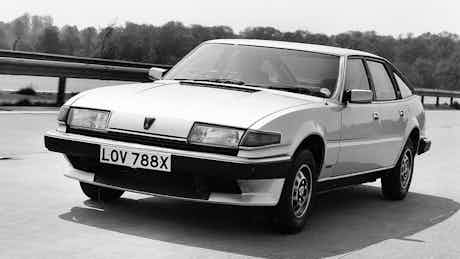When is a car MOT exempt?
February 07, 2023 by carwow staff

Cars over a certain age do not have to be put through the annual MOT test; we explain all
The MOT test – short for Ministry of Transport (now the Department for Transport) – was introduced in 1960 on a voluntary basis and comprised a few basic checks on tyres, brakes and steering for cars that were 10 years old or more.
Fast-forward to today and the MOT test is a comprehensive assessment of a car’s roadworthiness, taking in fundamental things as it did originally, while also involving checks of a car’s emissions, windscreen wipers, and much, much more besides.
The MOT test is also mandatory for all cars as soon as they reach three years old, but that mandate ceases once a car reaches a certain age, as we shall explain.

What is the MOT exemption age?
Cars that were first registered 40 years or more ago do not legally have to put through the annual MOT test.
This exception is rolling, so a car that was first registered on 1 February 1983 does not require an annual MOT, while a car first registered on 1 February 1984 does, with the latter’s MOT requirement ceasing once 1 February 2024 comes around.
This rule came into effect in 2018 – prior to that all cars required an MOT each year, regardless of their age.
Are there any exceptions to this rule?
Yes, but they’re reasonably specific.
If the car in question has been subject to “substantial changes”, it will need an annual MOT even if it is 40 years old or more.
Examples of what constitutes a substantial change include if the car has been fitted with a new body, chassis, axle or engine that differ from its original specification. The “original specification” detail means, though, that if you have replaced components with new versions of the same parts that the car was originally fitted with, the change is not considered substantial, and the car remains exempt from needing an MOT test once it turns 40.
Full details of what is considered a substantial chance can be found in the Government’s advice pamphlet on this subject.
Other exceptions to the 40-year exemption include cars with a ‘Q’ number plate, reconstructed classic vehicles and ‘kit conversion’ cars, where a new set of parts is added to an existing vehicle; such cars require an MOT even if they are 40 years old or more.
Even here, though, there are further caveats, with cars that are exempt from road tax due to being classed as ‘historic’ (which also happens when a car turns 40, applied on a rolling basis from 1 April each year) being exempt from MOT tests once they turn 40 even if they are substantially changed or kit conversions, assuming those changes happened more than 30 years ago.

Should I still get an MOT for my exempt car?
It may not be legally necessary to put historic cars through annual MOT checks, but it is considered a good idea by classic-car owners, and clubs.
That’s because MOT checks will see cars put up on ramps and examined in areas that tend to not be observable in normal circumstances, with testers able to spot serious rust, corroded brake lines, or other problems that might pose significant safety issues for the car. An annual roadworthiness check should also identify issues that could become significant but are not yet, giving you the chance to attend to them before they take serious root.
Cars Change? Carwow!
Looking for a new set of wheels? With Carwow you can sell your car quickly and for a fair price – as well as find great offers on your next one. Whether you’re looking to buy a car brand new, are after something used or you want to explore car leasing options, Carwow is your one stop shop for new car deals.















